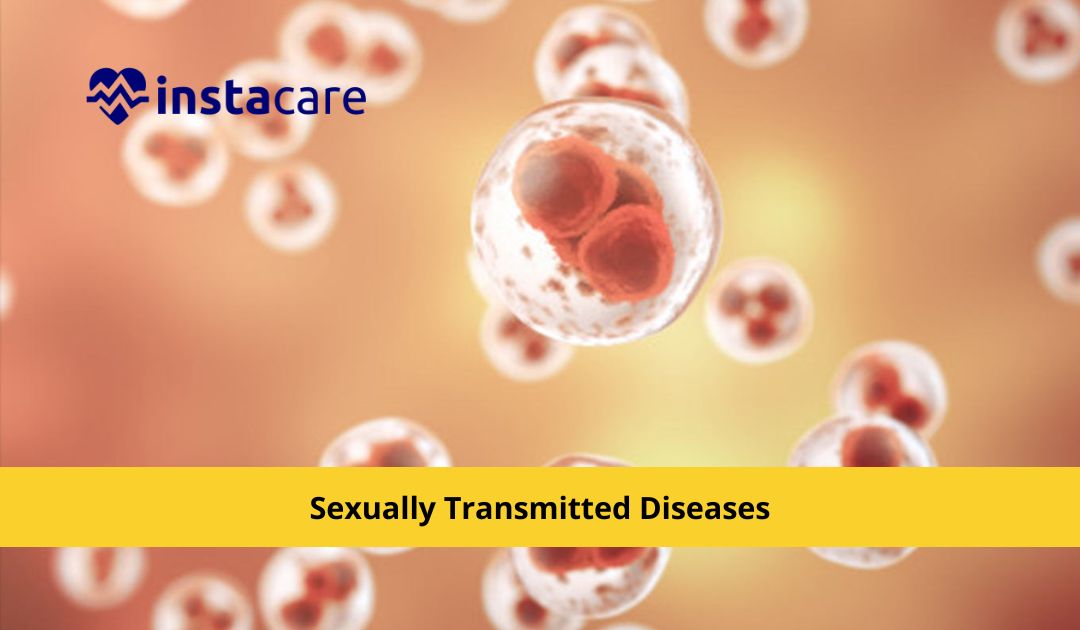Sexually transmitted diseases are impurities that spread
through sexual contact. Understanding and finding out about sexually
transmitted diseases is crucial in keeping up with sexual well-being. Despite progress in medical care. Confusion and the absence of mindfulness continue.
Making schooling about sexually transmitted diseases basic.
Learn About Sexually Transmitted Diseases
Types Of STDs
Sexually transmitted diseases (STDs) incorporate viral, bacterial,
and parasitic infections. Each category poses distinct challenges regarding
transmission, symptoms, and treatment methods. Understanding these differences
is crucial for effective management. And prevention strategies against these
infections.
Prevalence And Impact
Globally, STDs are a significant health anxiety, affecting
millions annually. Their impact extends beyond physical health, influencing
social dynamics and relationships. Addressing their incidence and impact
requires a multifaceted approach involving education and accessible healthcare
services.
Transmission And Prevention
Knowing how sexually transmitted diseases spread is
significant for halting them. Having safe sex, utilizing assurance, and getting
tried consistently are critical to forestalling their spread and holding your
sexual wellbeing in line. These means are significant in staying away from the
transmission of sexually transmitted diseases. And keeping up with great sexual
prosperity.
Signs And Symptoms
STDs show up differently in different people. And sometimes,
there are no obvious symptoms. Spotting these signs early is really important.
It helps to quickly find out if something's wrong and get treatment fast. This
early action stops things from getting worse and lowers the chances of passing
it on to others. Catching it early means less risk of complications and keeps
things from spreading further.
Testing And Diagnosis
Ordinary testing is urgent, especially for those taking part in sexual movement. Early identification through routine tests is vital. It considers brief treatment, stopping the spread of contaminations and turning away potential long-haul unexpected issues. Predictable testing fills in as a proactive measure, guaranteeing opportune mediation on the off chance that any issues emerge.
By focusing on standard screenings, people can effectively deal
with their sexual well-being, forestalling the heightening of potential well-being
gambles. By reducing the likelihood of infections spreading, this practice not
only safeguards personal well-being but also contributes to a healthier
community. At last, ordinary testing remains a foundation in the mindful sexual
well-being of the executives, engaging people to assume command over their
prosperity and relieve the dangers related to untreated contaminations.
Treatment And Management
Management of STDs involves medical interventions and
lifestyle adjustments, emphasizing the critical role of adherence to prescribed
treatment plans. This comprehensive approach aims to effectively control and
alleviate symptoms, emphasizing the significance of consistent treatment
adherence for better outcomes and reduced transmission risks.
Stigma Surrounding Stds
The social stigma linked to STDs impedes educational efforts
and support systems. Addressing this stigma requires dispelling misconceptions
through open dialogue and fostering discussions that promote understanding and
acceptance, vital in creating a supportive environment for affected
individuals.
Educational Initiatives
Educational campaigns are key to clearing up
misunderstandings about STDs. They're super important for promoting sexual
health by giving out correct info and pushing for actions that stop infections
from spreading. These campaigns bust myths, spread facts, and encourage folks
to take steps to prevent STDs. They're a big deal in making sure everyone has
the right knowledge to stay safe and healthy.
Safe Practices And Relationships
Communication and mutual responsibility within relationships
play a pivotal role in preventing STD transmission and cultivating a healthy
sexual environment. Establishing open communication channels and emphasizing
shared accountability are fundamental for practicing safe behaviors.
Impact On Mental Health
Having an STD can affect your emotions. It's
important to have strong support from others and get help for your mental health. This helps deal with how it affects you mentally, not just physically.
By building a good support system and reaching out for mental health support,
you can get care that looks at everything, not just the body. It's about taking
care of your whole self, making sure you're okay in every way.
Stds In Specific Demographics
Certain groups, like teens or older adults, deal with unique
hurdles regarding STDs. They need special help and guidance because their
situations differ. This means we need programs just for them, teaching what
matters most for staying safe and healthy. Tailored plans and focused learning
become important to give them the right tools to prevent and handle STDs
effectively. By aiming directly at their needs, we can help them understand
better and take the right steps to protect themselves. This way, they can stay
informed and maintain better health.
Conclusion
Knowing about the implications of STDs is crucial for both
individual and community well-being. Educating people, creating preventive
strategies, and addressing stigmas are pivotal in curbing STD transmission.
When we inform and empower individuals through education and supportive strategies,
we actively combat the spread of STDs. By fostering open conversations and
reducing societal stigmatization, we create a more informed and healthier
society. This collective effort not only helps in prevention but also supports
those affected, contributing to a community that prioritizes comprehensive
health and well-being.
Please book an appointment with the best General Physician in Lahore, Karachi, Islamabad, and all major cities of Pakistan through InstaCare, or call our helpline at 03171777509 to find the verified doctor for your disease.


